Ford Mustang (1999-2004) Service Manual: Hydraulic Control Unit
Removal
1. Disconnect the battery ground cable(14301).
2. Disconnect the anti-lock-brake control module electrical connector.
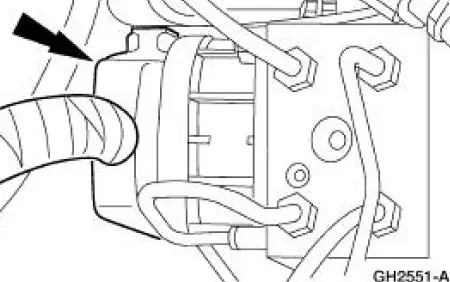
3. NOTE: The 4 wheel anti-lock brake system (4WABS) with traction control is shown , the 4WABS without traction control system is similar with one less hydraulic line.
NOTE: Plug brake lines to prevent any brake fluid loss.
Disconnect the brake lines from the hydraulic control unit (HCU).
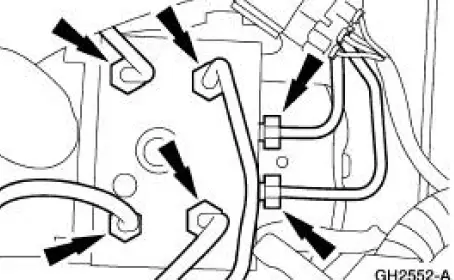
4. Remove the HCU bracket nuts to HCU.
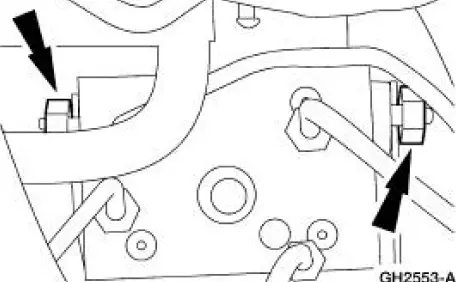
5. Remove the HCU.
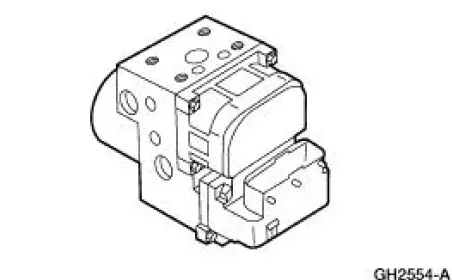
6. Remove the pump motor electrical connector.
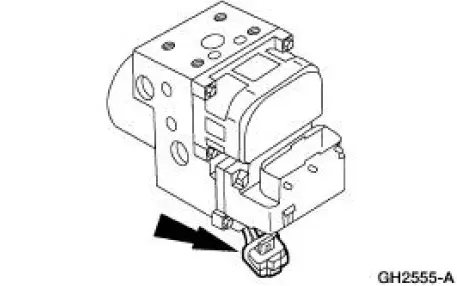
7. Remove the anti-lock-brake control module screws.
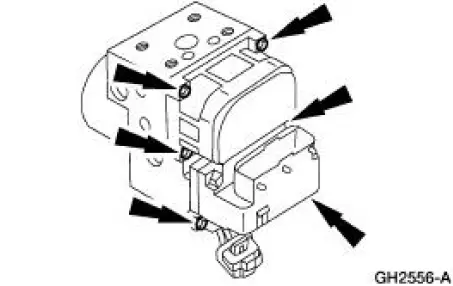
8. Remove the anti-lock-brake control module from the HCU.
Installation
1. NOTE: The brake system must be bled after the HCU is installed or replaced. To install, reverse the removal procedure.
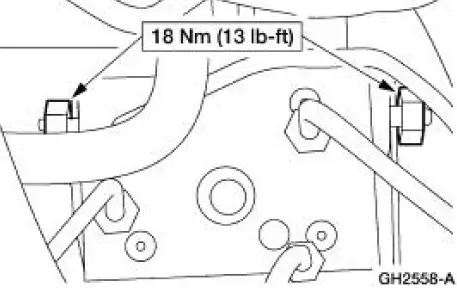
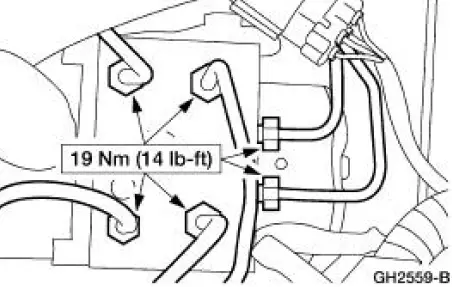
 Sensor Indicator - Rear
Sensor Indicator - Rear
Special Tool(s)
Pinion Bearing Cone Remover
205-D002 (D79P-4621A)
Axle Bearing/Seal Plate
205-090 (T75L-1165-B)
Sensing Ring Replacer
206-041 (T89P-20202-A)
Removal
...
 Module
Module
Removal
1. Remove the hydraulic control unit (HCU). Refer to Hydraulic Control Unit .
2. Remove the pump motor electrical connector.
3. Remove the anti-lock-brake control module screws.
4. Remove th ...
Other materials:
Extension Housing Seal and Gasket
Special Tool(s)
Slide Hammer
100-001 (T50T-100-A)
Installer, Transmission
Extension Housing Fluid Seal
308-002 (T61L-7657-A)
Remover, Transmission Fluid
Seal
307-048 (T74P-77248-A)
Removal
1. Drain the transmiss ...
Gauges And Warning Devices
Refer to Wiring Diagrams Cell 59 , Generic Electronic Module for
schematic and connector
information.
Refer to Wiring Diagrams Cell 60 , Instrument Cluster for schematic and
connector information.
Refer to Wiring Diagrams Cell 66 , Warning Chime ...
Piston - Selection
NOTE: The cylinder bore must be within the specifications for
taper and out-of-round before fitting a
piston.
1. Select a piston size based on the cylinder bore.
2. NOTE: For precision fit, new pistons are divided into three
categories within each size ...
